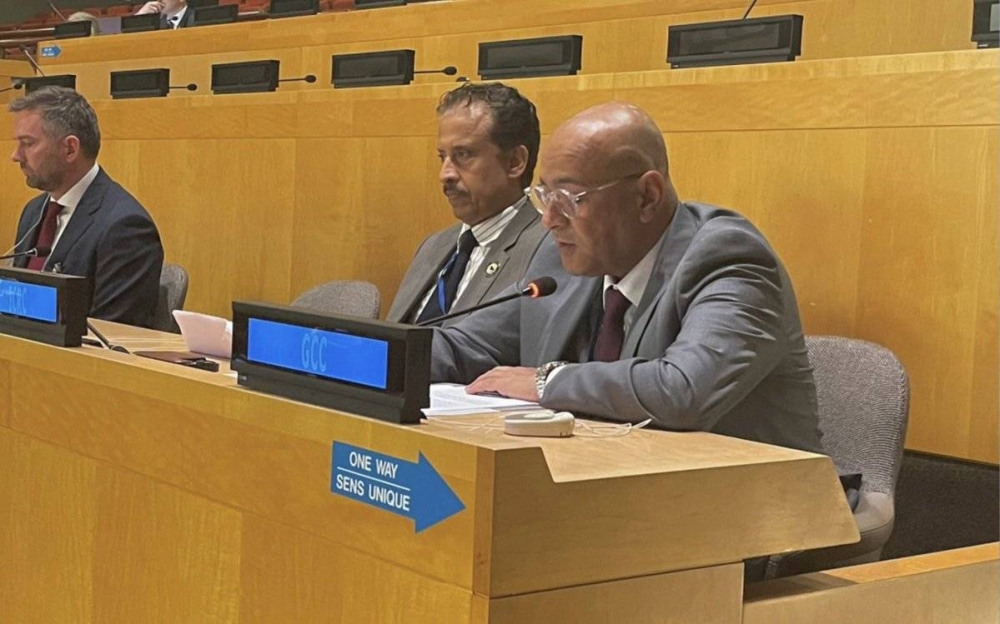
The Gulf Cooperation Council (GCC) praised the launch of the "Global Alliance for the Implementation of the Two-State Solution" which was announced by the Kingdom of Saudi Arabia on behalf of the Arab and Islamic countries and European partners during the ministerial meeting on the Palestinian cause held yesterday on the sidelines of the 79th session of the United Nations General Assembly in New York.
The GCC Secretary-General Jasem Mohamed Albudaiwi expressed the hope that this coalition will help grant the Palestinian people their legitimate rights to establish their state and live in peace and security.
Speaking at the ministerial meeting titled "The Situation in Gaza and Implementing the Two-State Solution as a Path to Just Peace," organized by the Arab League, the Organization of Islamic Cooperation, the European Union, and Norway on the sidelines of the General Assembly, the GCC Secretary-General said that holding this important event comes at an extremely critical time, as the situation in Gaza has reached one of the most severe humanitarian crises of our modern era. He emphasized the GCC's commitment to supporting all efforts aimed at alleviating the immense suffering of the Palestinian people.
He commended the ministerial committee formed by the extraordinary Arab-Islamic summit for its significant diplomatic efforts in garnering international support for a ceasefire, ending the Israeli aggression in Gaza, and enhancing recognition of the Palestinian state while ensuring the flow of humanitarian aid to the most needy populations.
Albudaiwi renewed the GCC's call for an international conference that includes all relevant parties to end the occupation and ensure the establishment of an independent Palestinian state within the borders of 1967, with East Jerusalem as its capital. He emphasized that this solution is the only way to achieve peace and stability for both Palestinians and Israelis.
He pointed out that the international community must recognize that the continued expansion of Israeli settlements and repeated violations of Islamic holy sites, particularly Al Aqsa Mosque, exacerbate tensions in the region.
"These practices not only threaten the prospects for peace but also constitute violations of international law, complicating the path toward a two-state solution, which remains the only viable option for achieving a just, lasting, and comprehensive peace," he stressed.
